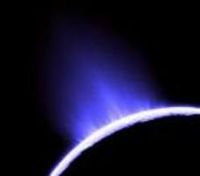SGU Episode 239
| This episode needs: transcription, time stamps, formatting, links, 'Today I Learned' list, categories, segment redirects. Please help out by contributing! |
How to Contribute |
| SGU Episode 239 |
|---|
| February 10th 2010 |
 |
| (brief caption for the episode icon) |
| Skeptical Rogues |
| S: Steven Novella |
B: Bob Novella |
R: Rebecca Watson |
J: Jay Novella |
E: Evan Bernstein |
| Quote of the Week |
'It is error only, and not truth, that shrinks from inquiry.' |
| Links |
| Download Podcast |
| Show Notes |
| Forum Discussion |
Introduction
You're listening to the Skeptics' Guide to the Universe, your escape to reality.
News Items ()
Enceladus Update ()
Synthetic Organisms ()
Spray On Glass ()
Gasoline from Carbon ()
Oral Conception ()
- http://blogs.discovermagazine.com/discoblog/2010/02/01/ncbi-rofl-thats-one-miraculous-conception/ http://www.ncbi.nlm.nih.gov/sites/entrez
Who's That Noisy ()
- Answer to last week - cracking ice from the surface of a frozen lake
Name That Logical Fallacy ()
- Name That Logical Fallacy
False Analogy I love the podcast- and look forward to it each week. However, I do listen to other skeptical podcasts. One day, the hosts were picking apart an argument and making reference to all of the false analogies therein. Several of them proffered their own analogies. Now I agreed with the skeptics, but several days later it dawned on me that someone with a different perspective could potentially accuse the skeptics of creating false analogies. This got me to thinking. Much of everyday language is analogy. Some would say all language is just a series of analogies. So how can we create analogies that can be demonstrably false from multiple perspectives. Under what conditions can we 'extend an argument to its logical conclusion.' Analogies are a wonderful tool for explaining complex issues in a way familiar to the listener, but I want to be able to do this right. Do you rogues have any thoughts on this? Should we try to avoid making analogies at all? I think this would make a good topic for discussion. Thanks for your consideration. --Dave Hampson Pullman
Science or Fiction ()
Item #1: A new study links drinking two or more cans of soda per week to an increased risk of brain tumors. Item #2: New research finds that underdogs do not work harder - in fact people try harder when competing against a lower-ranked, rather than higher-ranked, opponent. Item #3: Scientists recently described a sea slug that makes its own chlorophyll, and has chloroplasts that it uses to make energy from sunlight like a plant - the only multicellular animal known to do so.
Quote of the Week ()
'It is error only, and not truth, that shrinks from inquiry.' - Thomas Paine
S: The Skeptics' Guide to the Universe is produced by the New England Skeptical Society in association with the James Randi Educational Foundation and skepchick.org. For more information on this and other episodes, please visit our website at www.theskepticsguide.org. For questions, suggestions, and other feedback, please use the "Contact Us" form on the website, or send an email to info@theskepticsguide.org. If you enjoyed this episode, then please help us spread the word by voting for us on Digg, or leaving us a review on iTunes. You can find links to these sites and others through our homepage. 'Theorem' is produced by Kineto, and is used with permission.
References

|